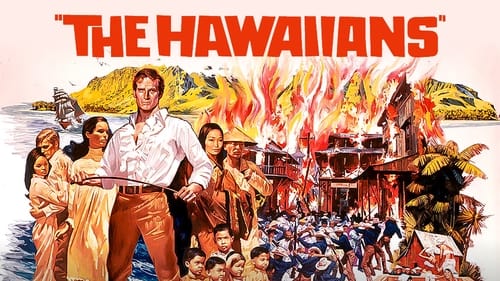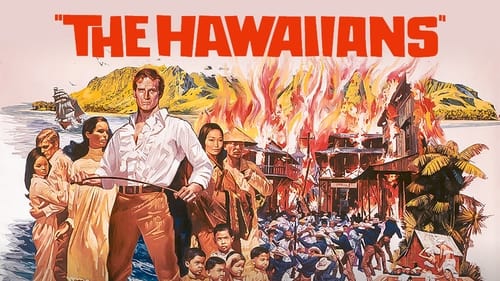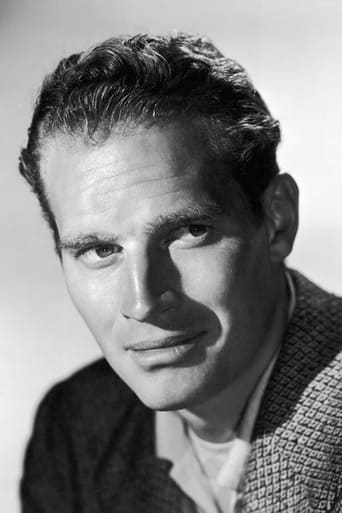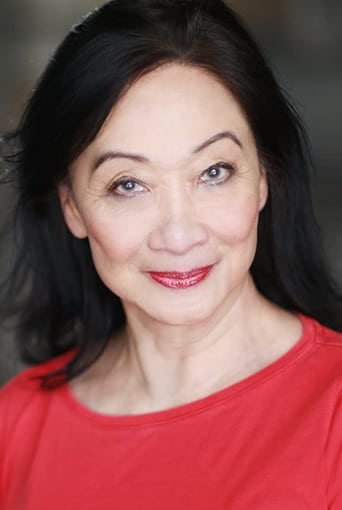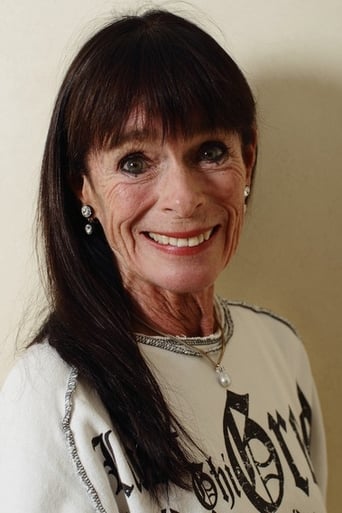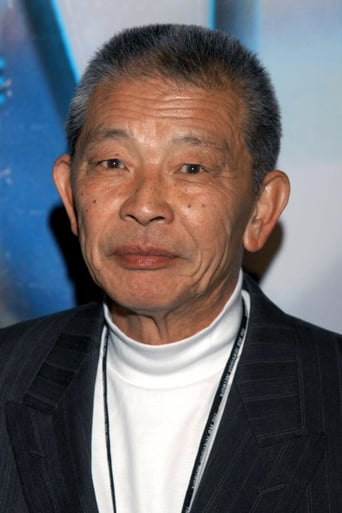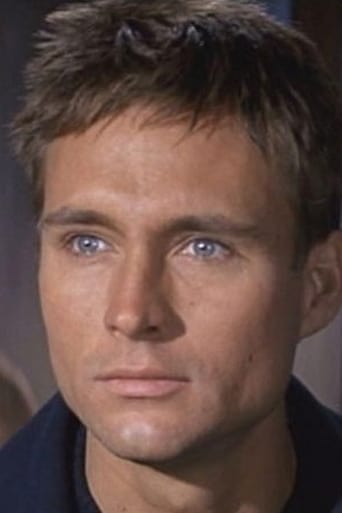Voxitype
Good films always raise compelling questions, whether the format is fiction or documentary fact.
AshUnow
This is a small, humorous movie in some ways, but it has a huge heart. What a nice experience.
Jonah Abbott
There's no way I can possibly love it entirely but I just think its ridiculously bad, but enjoyable at the same time.
Tymon Sutton
The acting is good, and the firecracker script has some excellent ideas.
moonspinner55
Based on the later chapters of James A. Michener's book "Hawaii", made into a film in 1966, opens with a new generation of characters circa 1870, with Americans bringing Chinese servants to Hawaii by ship. The sea captain (Charlton Heston, the black sheep of his family!) returns home to his woman who informs him his grandfather has died, leaving the family shipping lines to a cousin. The captain isn't pleased with what he has inherited--"a worthless piece of land"--however, in two years he strikes water and starts a pineapple plantation with help from a servant (Mako) and his concubine, Nyuk Tsin (Tina Chen), a fast-learning girl with a talent for gardening and with pre-feminist leanings. The servant already has a wife back in his native country, yet he and Nyuk Tsin have five sons and a daughter before he contracts leprosy and is shipped off to a leper colony on Molokai. Meanwhile, the captain's wife bears him a son before apparently going mad (she's repulsed by his touch, which isn't necessarily the same thing). Mammoth undertaking by screenwriter James R. Webb, who introduces and then disposes of characters in quick succession, with the years in-between the tragedies flashing by at a rapid rate. It may have been all too much for director Tom Gries to handle; the acting is uneven, the tone of the movie is often uncertain, and the last-act where the babies have now become adults and revolution breaks out under the dictatorship of a new queen (Naomi Stevens!) is akin to soap opera. Heston, Mako and Chen are the only performers who manage to create genuine characters, with Chen's return home to her long-estranged children the film's most moving sequence. Henry Mancini's flavorful score starts the picture on the right note, while cinematographers Lucien Ballard (who left the project ill) and Philip Lathrop give the Kauai and Maui locations a fine visual texture. ** from ****
Xander Seavy (RiffRaffMcKinley)
Given the epic nature of James Michener's thousand-page novel "Hawaii," if the first film did any kind of positive business whatsoever, a sequel was bound to happen. The result is actually quite good, though nowhere near as good as George Roy Hill's original. Practically none of the original cast or crew has returned. Hill was succeeded as director by Tom Gries; Trumbo and Taradash are replaced on script duty by James R. Webb ("How the West Was Won," "Cheyenne Autumn"), who certainly had a bizarre gift for crafting intelligible and reasonably entertaining stories out of momentous historical hoopla. And since it takes place a couple generations after the end of the first film, obviously the cast is all gone. Charlton Heston adds more than prestige (he also adds presence and strength) to the central character of Whip Hoxworth, with Geraldine Chaplin decent but underused as his odd wife Purity. Mako is terrific as a Chinese peasant farmer who comes to Hawaii after cheating himself a new wife-- Char Nyuk Tsin, played by Tina Chen in a performance that starts off rather uninteresting but blossoms into a real stunner. The story goes on through racial strife, economic and ecological developments on the islands, political turmoil, and personal tragedy, very much in the spirit of the first "Hawaii" but without all the buildup (remember how much time had passed before we saw the islands in the first one?) and with a quicker pace. The film is lush, intriguing, and adequately enacted, but there are a few obstacles to overcome before you can really get into it. The worst of these is Henry Mancini's tacky, obvious, ethnic cliché-infused score, which comes nowhere near the scope, emotion or wonderment of Elmer Bernstein's original. If Bernstein couldn't have been secured, surely there was a better option (Jerry Goldsmith springs to mind) than Henry "The Pink Panther" Mancini. But the score does have a few moments of... well, adequacy. Given that the film obviously failed and-- having never been released on either VHS or mass-market DVD-- both suffers in obscurity while toiling in notoriety, and given that the first film was (at least to this reviewer) almost thoroughly a masterpiece, "The Hawaiians" is much better than can be expected. And compared to the lame sequels that stuff the cineplexes these days, it plays off like a "Citizen Kane" or a "Godfather."
Robert J. Maxwell
You have to admire James Michener's resolve. He's the guy who wrote the book this screen play is based on. Michener wrote one novel or non-fiction work after another, each of them requiring an unconscionable amount of historical and geographic research. There are a couple of dozen doctoral dissertations scattered among his books -- "Centennial," "Texas," "Alaska," "Poland," "Iberia." This is about a certain part of Hawiian history, a sprawling epic, as they say, following multiple narrative threads through three generations. The principal thread belongs to Charlton Heston, who begins as a reckless and uncaring sea captain and winds up as a cigar-puffing prosperous land owner, the evolution being the result of his willingness to take risks. The other main thread belongs to Tina Chen, who begins as an outcast young Chinese woman and becomes a socially prominent leader of the Chinese community in Honolulu. She's a minority among the Chinese in that she is Hakka, an internally marginal group in China. Her minority status isn't Michener's literary trick either. Hakka is one of half a dozen or so common dialects in Chinese and in one of my classes we had representatives of all of them lined up at the front of the room pronouncing one familiar word after another. There was an obvious family resemblance among most of them. You could "hear" the buried Cantonese word when it was spoken in Mandarin Chinese. But not Hakka. It was to the other dialects what Rumanian is to the other Romance languages.Wait a minute. Was that "off topic"? Well, it doesn't matter much. There's no describing the plot of this movie. If anything ever happened in Hawaiian history, it happens to somebody in this movie. You want to talk leprosy? Racism? The switch from a monarchy to a territory of the United States? The plague? Let it simply be said that it's all here.Charlton Heston is his usual monolithic self and fills the character appropriately. Tina Chen is a beautiful woman who is, at best, professional. We don't get to see much of Geraldine Chaplin, who rediscovers her native Hawiian genes and appears to go nuts. John Phillip Law isn't around much either. Tina Chen's husband is Mako (who is Japanese) and he's quite good in what is essentially the same role he played in "The Sand Pebbles." Some of the supporting players appear to have been chosen for their looks rather than their talent.I rather like Hawaii, at least as it was when I was last there, years ago. There's a good deal of solidarity to be found on the islands. During the turmoil of the 1960s when American cities were in the grip of violent revolutions or their simulacrums, Honolulu went quietly about its business, and that in a city more ethnically diverse than any found on the mainland.Anyway the film is worth watching. I can't say I was especially gripped by any of the incidents or characters. I'd recommend it if only for its educational properties. Michener was only rarely effective as a dramatist but all that time he put into his research certainly paid off.
ptb-8
This film today, is quite forgotten because it never turns up on TV and is not widely available on video, and certainly not yet on DVD. Tis is a great pity as THE HAWAIIANS is an excellent and interesting stand alone sequel to the whopper epic of 1966 HAWAII - which was a 70mm release with Julie Andrews and Max Von Sydow (and even Bette Milder in a crowd scene). James Mitchener and his tales of the south seas books presented film makers with many opportunities for grand and spectacular South Pacific extravaganza dramas and even one enchanted musical. THE HAWAIIANS is basically the story of how Charlton Heston started the pineapple industry in Hawaii, with the help of hard working clever Chinese peasants, some of whom were brought into the plantation household for love and 'marriage' and even unfortunately, a spot of leprosy. While that might sound trite, and I am not making fun of it, it allows for 'ordinary' people to feature center screen in an epic way. Because this film is not about "major Euro characters" like in the first film, THE HAWAIIANS unjustly has been derailed and forgotten. But it is actually more interesting because it is about someone else other than religious zealots smashing idols and their sexually repressed wives ripping the corset off to run barefoot down the beach with the native teenagers.. So if you wish to see a truly glorious epic film about the people who actually did something to and for Hawaii (whether it ultimately good or bad) THE HAWAIIANS lives up to its title showcasing the real hard working people who lived and loved in Hawaii a century ago. I had the unforgettable experience of seeing both HAWAII and THE HAWAIIANS back to back as a double feature (7pm-midnight) in a Sydney Suburban cinema one freezing winter night lashed by a monster cyclonic thunderstorm. Here we were rugged to the chin in woolly everything straining to hear the soundtrack over the crashing din of the rain on the theater's enormous tin roof whilst looking at a spectacular cinema-scope vista of tropical sunny island drama. About an hour into the first film, the plaster ceiling sprang several serious leaks and a very grimy waterfall left of screen that was washing 55 years of dirt from above the curtains. The tubby manager and the broom kid were heard scurrying into the ceiling with empty tin ice cream bins. With hissed directions from Mr Tubby, the kid was clomping about on the beams, creaking and thudding, placing empty tins under the drizzle from the roof above. That plugged the leaks but instead started a hilarious symphony of 'pling' and 'plong' and 'plish' and 'klading' and 'sklosh' as the huge raindrops fell into the empty bins and began to fill them. It sounded like when somebody plays "eidelweiss' using a dozen glasses of water of varying amounts. This began to cause the entire audience of a dozen of us to laugh and look about. Suddenly something crashed and splashed from behind the screen as the kid went straight through a part of the ceiling long unseen. A massive puddle gushed from under the masking, across the stage to the footlights and waterfall-ed straight into the front aisle. The kid made his way out from behind the screen cringing, wet and meekly looking about. The audience erupted into rapturous applause. The kid took a bow and slipped straight offstage onto the soggy carpet and out of sight. What a night! Value and extras like that never happen in multiplexes today. Anyway, after we survived HAWAII, we all got a free hot chocolate, congratulated the manager and wet kid, and went back in, storm raging still, buckets sploshing away , ceiling straining, and let THE HAWAIIANS transport us to another world in another (warmer) age. Such was the professional cinematic expertise of this very good sequel. I have never looked at a pineapple in the same way ever again.


